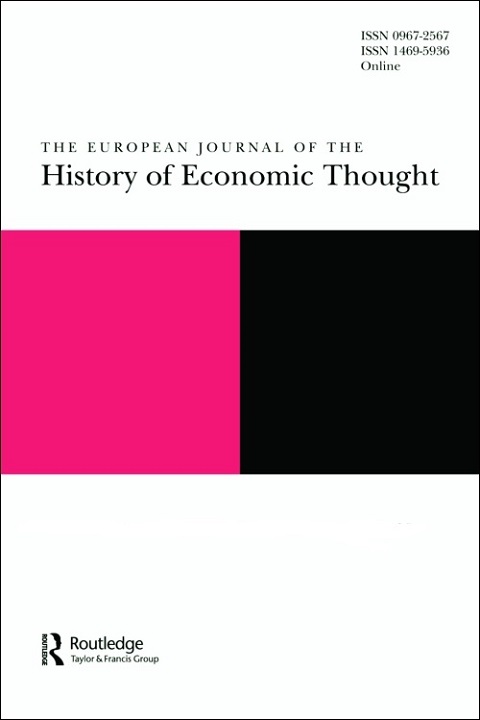
The European Journal of the History of Economic Thought
Volume 15, Issue 2, Jun 2008
Pages 211-246
- DOI: 10.1080/09672560802037573
- Print ISSN: 0967-2567
- Online ISSN: 1469-5936
Thoreau's economic philosophy
Abstract
This paper provides an encompassing portrayal of Thoreau's economic thought. It is analyzed against the background of the history of economic thought and the economic thinking of his time. Thoreau's economic thought is an extensive examination of the ideas of classical political economy, and particularly of Jean-Baptiste Say, and it is a fundamental critique thereof. Thoreau recognizes that some aspects and foundations of the modern conception of the economy lead to an alienation of the human being from itself as well as to an alienation from nature. I demonstrate that this critique is a result of Thoreau's specific approach to the economy, which, based on his particular understanding of the human being and his philosophy of nature, seeks the meaning of the economy for human life and for nature. In this philosophical approach, which I characterize as an economic philosophy, Thoreau's deeper defiance of classical political economy and his original place within the history of economic thought are grounded. It leads Thoreau to an alternative conception of an economy of moderation, which is identified and described in detail. I conclude with considerations on the potential meaning of Thoreau's thought for current economic research.